 |
|
 |
|
|||||||||
|
|
 |
|
||||||||||
|
|
|
|||||||||||
|
|
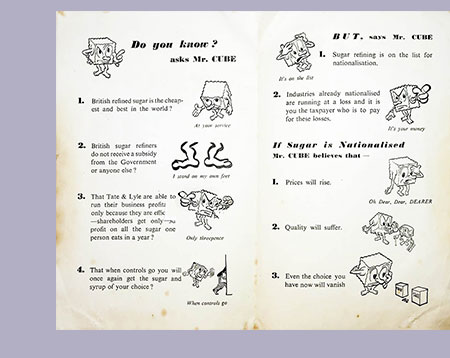 |
|
|
|||||||||
|
|
|
|||||||||||
|
|
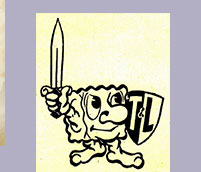 |
|
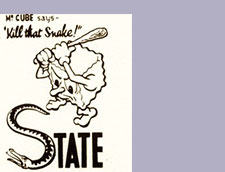 |
|
||||||||
|
|
|
|||||||||||
 |
 |
|
||||||||||
|
|
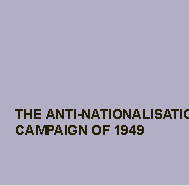 |
|
||||||||||
|
|
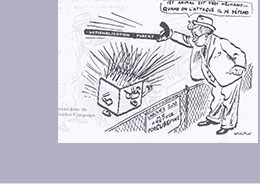 |
|
||||||||||
|
|
|
|||||||||||
|
|
|
|
|
|
|
|
|
|
|
|
|
|
The invention of the character Mr.Cube to represent the British Sugar Industry is credited with preventing the nationalisation of the industry in the early years of Britain's Labour Government after 1945. The public, poor saps, would just not allow anything to hurt the poor little chap . So much for democracy. See H.H.Wilson, "Techniques of Pressure - Anti-Nationalisation Propaganda in Britain" in the Public Opinion Quarterly Summer 1951, pp. 225 -242.March 7th 1951, Lord Lyle told the stockholders of Tate & Lyle "it is fair to claim that that we have, with the help of Mr.Cube, won the first round" against the Goverment." There are other less offensive examples of a cartoon character representing a commercial enterprise.
RON NOON WRITES Mr Cube also proved a very adept friend of the Conservatives (Leonard Lyle T&L company president was a former Tory MP and close friend of Winston Churchill) and of course all their supporters in Fleet Street. The help of a largely Conservative press in bloodying Labour’s nose in February 1950 was recognized by Anthony Hugill, who like Peter Runge a T&L director working alongside him, was another shrewd strategist in the campaign. His gratitude was extended to Government adversaries as they were the ones responsible “to a very great extent for the sudden and overwhelming success of Mr Cube”! Some of their assertions “on sugar refining” and “election expenses” had informed the public “to an extent which we could never have achieved without their aid, and all of this without having to pay them any plugging money”! Hugill reminisced in Sugar and All That (1977) how the anti-nationalisation campaign was “not T&L’s nor Lord Lyle’s but Mr Cube’s”. His psephological excess was remarkable in an era devoid of electronic and instant communication media, when mass communication meant the press and “BBC steam radio”. An excited Hugill was sat in the company boardroom with Peter Runge, a Tate & Lyle director who also figured prominently in“Mr Cube’s election campaigning”. There is however no mention in Sugar and All That, what they had in hand awaiting the dawn, but the Director’s exclamation, “by God we’re going to beat the buggers” does suggest a degree of alcohol induced over-optimism! Still a comeback from 186 in the first leg to 6, 70 yrs ago was a remarkable achievement for a Tory party that in 1945 had seemed in almost terminal decline.
|